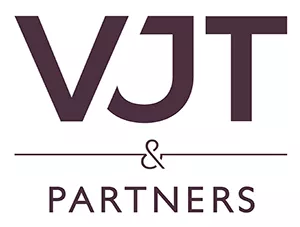TLDR:
- The EU Commission has drafted its White Paper on Artificial Intelligence ("AI White Paper") to tackle a wide variety of legal issues in the context of artificial intelligence ("AI").
- As AI slowly, but surely will surround us, it is worth keeping a close eye on legislative developments in this area. AI potentially could be a hotter legal topic than the GDPR.
In the world of data economy and algorithms, AI has increasingly become more and more intertwined in our everyday lives. Its business benefits are countless. Of course, at the same time, AI poses several legal issues including opaque decision-making (the black-box effect), discrimination (based on incorrect machine learning), privacy, safety, and liability issues. Recognizing these concerns, Ursula von der Leyen, President of the EU Commission, noted "with new technologies should not come new values. This is the basic idea: to have the best possible tools, to use them in the best possible way, but to stay loyal to the fundamentals that have brought us here". This view was the keystone of the Political Guidelines for the next European Commission 2019-2024, and as its first step, the EU Commission prepared the AI White Paper to create an ecosystem of trust for AI operation in the EU.
Only high-risk AI systems are targeted
The good news for businesses employing AI, is that the AI White Paper does not aim to regulate all AI systems, but it rather takes a risk-based and proportionately regulatory approach. The focus is on high-risk AI that can be determined by the combination of: (i) sectors (e.g. healthcare, transport), and (ii) its use and effect (e.g. legal effects for the rights of the individual, injury, death, or damage). This also might include high-risk AI systems, irrespective of the type of the sector, e.g. facial recognition.
However, through a voluntary labelling system, non-risky AI systems could opt to make themselves subject to AI regulation requirements. Further, such labelling could create a more trustworthy environment. However, once the AI system is labelled, the requirements would then be binding.
Feeding the right data
AI thrives because it is fed data, and just as the human body needs the right food to prosper, so does AI. If the "diet" is unbalanced, AI may unjustifiably favour certain categories, e.g. men over women, so it is vital to ensure that data sets are sufficiently broad, representative, and cover all relevant scenarios to develop a proper, non-biased decision-making mechanism.
Aiming for traceability
As AI systems are complex and opaque, often the "why" behind the AI's decision is unclear (the "black box" effect) which makes supervising and enforcing the applicable rules difficult. Thus, the AI White Paper suggests methods to ensure that we can track the actions or decisions made by AI systems (e.g. keeping records on the data set used to train AI systems and documenting the programming and training methodologies).
Transparency matters more than ever
It is understood that trust is based on transparency. Therefore, users should understand the AI systems' capabilities and limitations, and they should also be clearly informed when they are communicating with an AI system and not a human being.
Always ensure human oversight
The AI White Paper claims that a trustworthy, ethical and human-centric AI can only be achieved by ensuring human involvement, which may include human review before the decision is made (e.g. a rejection may be completed by a human only) or review afterwards (e.g. the rejection may be processed by AI, but human oversight is ensured afterwards), but the bottom line is to always have it.
Key takeaway:
The AI White Paper presents many issues which have already been debated nowadays when businesses have started to deploy machine learning. The new AI regulations affecting a wide variety of legal fields (from data protection through other regulatory fields to commercial law) will require a new way of thinking. As the ubiquity of AI in the world is expected, we believe that it can be a hotter topic than GDPR. So, it is definitely worthwhile to follow the latest legal developments relating to AI.
Originally Published January 2021
The content of this article is intended to provide a general guide to the subject matter. Specialist advice should be sought about your specific circumstances.


